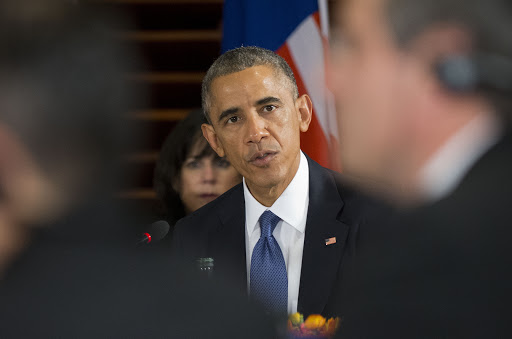In a surprise decision, the U.S. Supreme Court agreed on Friday to take up another Obamacare case. It was a surprise because even though two circuit courts had two different rulings — a situation that usually makes the Supreme Court agree to hear a case — one of those rulings had been appealed to an en banc hearing, or a hearing by all the judges on that court.
But that court, the D.C. Circuit Court of Appeals, is being stacked by the Obama administration, according to Grace-Marie Turner of the free-market health care reform group Galen Institute, and would have come to a decision in agreement with the Fourth Circuit Court of Appeals, which ruled 3-0 in favor of the administration.
If that en banc hearing had gone forward, that would have taken away the Supreme Court’s incentive to hear the case, called King v. Burwell, so they grabbed it from the Fourth Circuit before that happened.
That decision led health care attorney and former Deputy Secretary of the U.S. Department of Health and Human Services in the Bush administration, Eric Hargan, to say, “The people in the court had a reason to bring it forward. Somebody thought they had a chance at winning.”
Who that “somebody” is isn’t clear. No one interviewed by Aleteia wanted to wander into discerning the Supreme Court’s political processes, leaving the speculation of why this case is being taken up now left as mere speculation.
But all of them agreed that the Court wants to take on this case to resolve a question that’s now vexing the American people: are the tax subsidies they’re paying and receiving legal under the Affordable Care Act?
While that may sound odd, the issue is how the IRS reads the law. Four words are at dispute in these cases: “established by the state.” According to Amy Barrett, a law professor at Notre Dame who specializes in statutory law, the plain meaning of the text means that the subsidies can only be given in the 14 states which established their own health care exchanges. That would mean that people in the other 36 states that did not build their own exchange and are instead relying on the federal exchange would not be able to get those subsidies. Financially speaking, that would take away the incentive for anyone to sign up for Obamacare, Barrett said.
And Hargan pointed out that if the Court ruled in favor of that interpretation, then the tax on employers in those 36 states would go away, which would remove a significant source of income for the law.
But, Hargan and Barrett said in separate interviews, the IRS argued in court that there’s enough ambiguity over the meaning of the word “exchange” that it triggers a piece of statutory interpretation which allows the administration to fill in the details where Congress hasn’t been clear. “If the text is ambiguous,” Barrett said, “then the agency gets to decide [the regulation] as long as it is reasonable.”
The Fourth Circuit, according to Hargan, was clearly wrestling with both sides of the arguments, but decided that it was sufficiently ambiguous to rule in favor of the administration.
In a law that, according to Turner, is 2,800 pages long and now has 25,000 pages “and counting” of regulations attached to it, and a law that, according to former House Speaker Nancy Pelosi, had to be passed “in order to find out what’s in it,” it’s easy to see where there might be ambiguity. But Turner contends that there are seven instances where those four words were used and all of them, she says, were unambiguous.
According to the experts interviewed by Aleteia, Jonathan Gruber, the architect of Massachusetts’ health care law, which was the basis for Obamacare, wanted that provision in there in order to act as “a carrot and a stick,” as Barrett put it, for the states to build the exchanges. The carrot was the federal monies dangled in front of the states for building the exchanges and getting the people insured. The stick was the loss of that potential money.
And it’s the money, or lack of it, that could bring the whole law to a halt. If the Supreme Court sides with the plaintiffs and says that the subsidies can only be applied in the 14 states with their own exchanges, then subsidies to millions of people will be dropped and their incentive to be insured under Obamacare will be removed. When subsidies are anywhere from $5,000 to $14,000 a year for a family of four making anywhere from $30,000 to $92,000 a year, according to Turner, that’s a substantial loss of incentive.
That would impose a huge burden on the states, according to Hargan, since health care costs are already the single largest budget item in the federal and state budgets, “even when we were actively engaged in two wars.”
A decision for the plaintiffs would bring a lot of “political turbulence,” according to James Capretta, a senior fellow at the Ethics and Public Policy Center, because “the court’s job isn’t to figure out what Congress intended” – it’s simply to interpret the law as it is.
According to Barrett, if the Supreme Court says the law should read as it is, Congress could simply change the law according to the IRS’s wish, but “this Congress is unlikely to do that,” which will mean that millions will be without insurance — including those who had to drop their own insurance because ObamaCare regulations told them it wasn’t good enough and then sign up for insurance under Obamacare.
The Court will hear the case some time this session and then issue a ruling probably sometime in June, according to Barrett. Until then, we’re left to wonder, “Will the Supreme Court be the death panel of the Affordable Care Act?” Hargan asked. “That’s the trillion dollar question.”
Thomas A. Szyszkiewicz writes from Minnesota.

